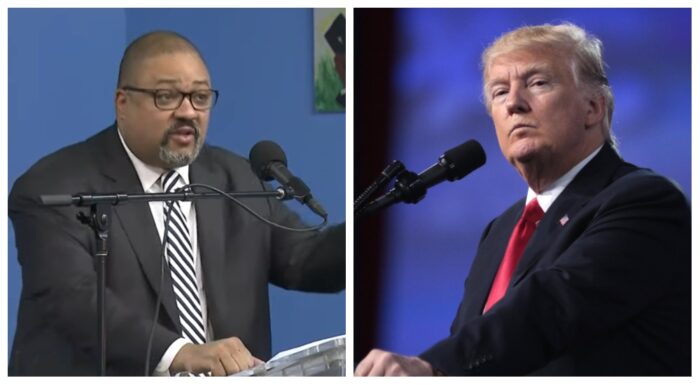Former Assistant U.S. Attorney Andrew McCarthy, who successfully led the 1995 terrorism prosecution against Sheikh Omar Abdel-Rahman and eleven others for the 1993 World Trade Center bombing, has ripped Manhattan District Attorney Alvin Bragg and his team of prosecutors regarding on the ongoing trial of former President Donald Trump in the Stormy Daniels hush money case.
The indictment accuses Trump of falsifying internal Trump Organization records to conceal the true purpose of payments made to Michael Cohen, who paid off porn star Stormy Daniels and Playboy model Karen McDougal to keep their alleged affairs with Trump from becoming public in 2016. Cohen claims the Trump Organization reimbursed him along with bonuses, while prosecutors argue that the payments were falsely recorded as legal expenses.
“They haven’t come close to proving that fraud has taken place,” McCarthy stated. “And it’s — they don’t just have to prove that fraud has taken place, they have to prove that it was fraud that included a specific intent to commit another crime, which we believe is a federal campaign finance crime. It’s astonishing that we don’t — we can’t say that with complete certainty, and that’s supposed to be spelled out in the indictment. But there’s not a scintilla of evidence that Trump was even thinking about federal campaign law, let alone that they conspired to violate it.”
“And I think it’s important to make this distinction: You can make an agreement, which as Jonathan just said, is a legal arrangement, to not disclose, or to try to bury politically embarrassing information; you can absolutely intend to do that,” he continued. “That doesn’t mean that you were even thinking about the federal campaign finance laws, much less willfully violating them beyond a reasonable doubt. This is what Bragg has to prove here to at least get a conviction, at least as a matter of law. Whether they can sway the jury is another matter.”
He then made reference to Cohen’s testimony on Monday: “And the final thing I would say about this is you can put somebody who is even a convicted perjurer on the stand, but generally the agreement that a prosecutor makes to a jury in terms of the commitment that you make in the opening statement and the way you try the case, is that we’re not gonna ask you to convict on the basis of a perjurer’s testimony unless we can show you a document or other testimony or something that corroborates that witness on this disputed point.
“They are asking this jury, they have to ask this jury, if they’re gonna convict on fraud, to accept this guy’s uncorroborated testimony despite his mountainous credibility problems. That is not something a prosecutor would ordinarily do, which is why I think the prosecutors in my old office, the Southern District of New York, decided not to pursue this case,” he concluded.



